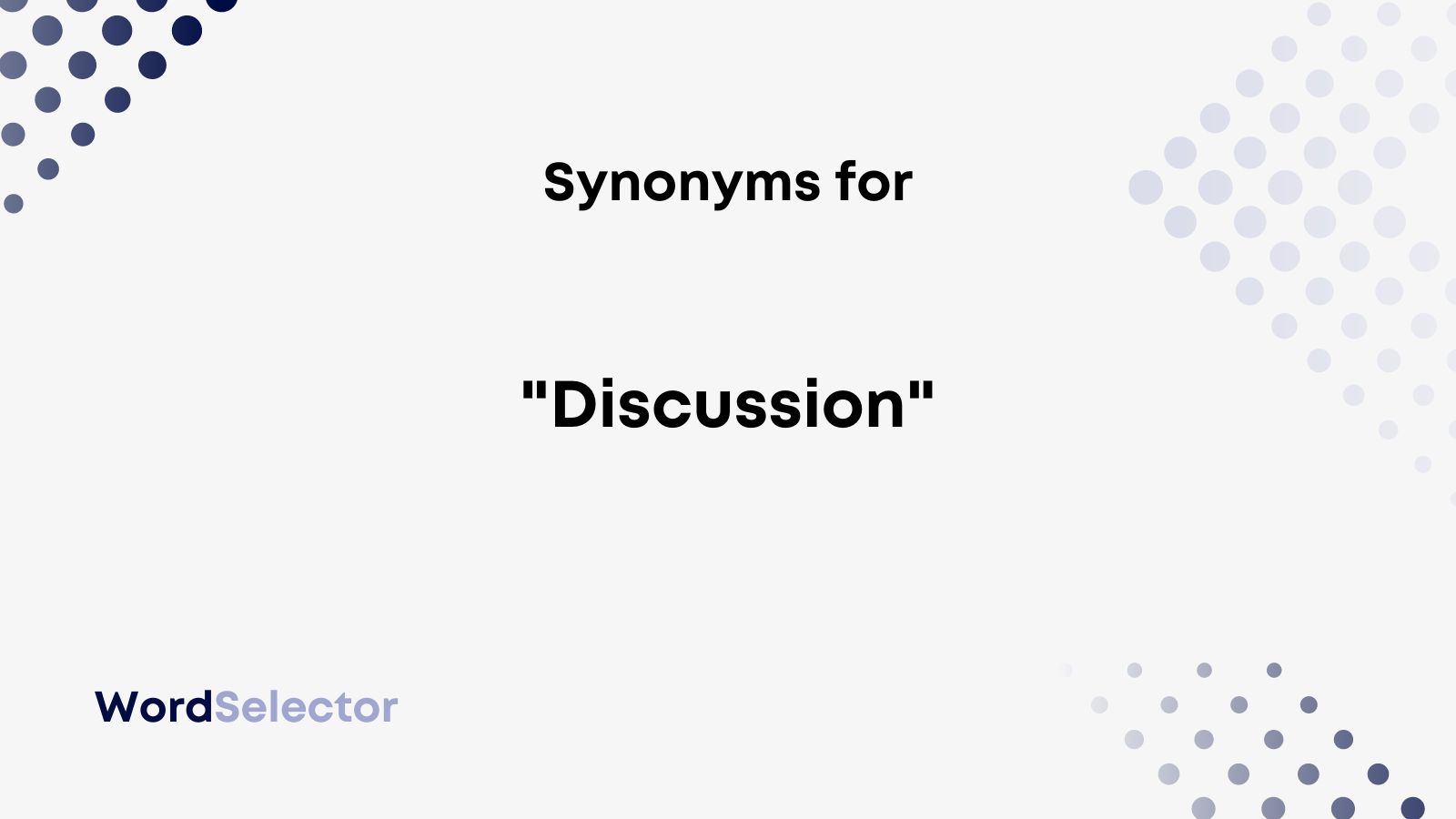Do you want to figure out how to say “discussion” in a different way?
Perhaps you’re tired of using the word over and over again!
It’s okay! We all tire of repetition in our writing!
That’s why we’re here to help. This article will teach you other ways to say “discussion” to help you keep things interesting.
Other Ways to Say “Discussion”
- Dialogue
- Conversation
- Discourse
- Exchange of ideas
- Chat
- Debate
- Consultation
- Talk
- Converse
- Symposium
- Conference
- Parley
- Negotiation
- Deliberation
- Meeting
KEY TAKEAWAYS
- “Discussion” already works really well to talk about a meeting or conversation between multiple parties.
- “Dialogue” is an excellent formal synonym if you’re trying to find interesting ways to mix things up.
- “Conversation” works well as a more informal alternative if that’s going to help your writing.
So, keep reading to learn another word for “discussion.” We have explored more regarding the best formal and informal alternatives to show you what works.
Also, the final section will teach you if it’s correct to write “discussion.” So, you may want to skip ahead if you think this section applies more to your needs.
Dialogue (Formal)
It’s worth using “dialogue” as a polite way to say “discussion” in your writing. It’s also the more formal option, which works well in most business contexts.
So, you can use it when planning a meeting with a client.
There’s nothing wrong with referring to a meeting as a “dialogue.” After all, the chances are very high that you’ll have an open discussion with your client to find out what they want.
Therefore, this is great to use as a more professional alternative. You really can’t go wrong with it if that works better for your written tone.
Check out this sample email to learn a bit more if you’re still confused:
Dear Ms. Walsh,
I believe we should have a dialogue about what both parties expect.
Then, we’ll be able to lay more of our opinions on the table before we continue.
Best wishes,
Sam Franc
It’s also smart to use this in academic writing. Sometimes, this will allow you to explain what discussions or conversations you might have had before coming to a conclusion.
So, feel free to review this sample to learn a bit more about it:
We had many dialogues to discuss what came next. It was very important for us to be on the same page.
Conversation (Informal)
It’s good to simplify things by using “conversation” as another way to say “discussion.”
After all, “conversation” is a very common word that most people understand in English. So, it’s much more likely to be well-received in friendly and casual situations.
For the most part, you can use this when contacting an employee.
If you refer to a meeting as a “conversation,” it takes the pressure off what might be said during it. So, the employee will be happier to attend the meeting without worrying about it.
Feel free to review this sample email to learn more about it:
Hey Billie,
Please confirm that you’ll be free on Thursday for our conversation.
I’m keen to hear your thoughts on some of the changes we will be making.
Kind regards,
Donovan Holy
Also, feel free to include this phrase in an essay. You can use it when talking about conversations you might have had with your peers to help you come up with an idea.
If you’re still unsure, you can review this essay sample:
You should have heard the conversations we had about this. It’s the only reason we were so comfortable reaching these conclusions.
Is It Correct to Say “Discussion”?
It is correct to say “discussion.”
It’s a common (and sometimes overused) word that shows you’re having a meeting or conversation with someone.
Therefore, it’s commonly seen in academic papers. It’s proper to use in these cases, as it shows you’ve had a discussion of some kind to get to your conclusion.
Feel free to review this academic writing sample to learn more:
We had a discussion to determine the appropriate outcome. We all feel like we settled on a fair choice.
You can also use it in the workplace. Again, it’s one of the most common words used to talk about meetings or disagreements that need to be ironed out.
For example:
Dear Ms. Morrison,
We should have a discussion about these changes soon.
I have some ideas that I’d really like to run by you if that’s possible.
Yours,
Trudy Marx
You should bookmark this page before you leave, though! Otherwise, you might forget all the useful synonyms we listed here. You never know when they’ll come in handy again.

